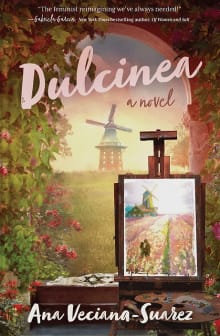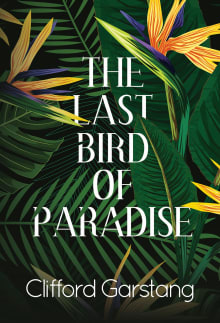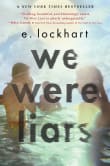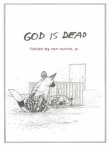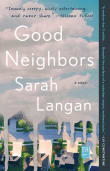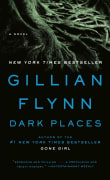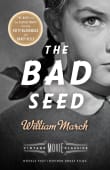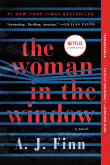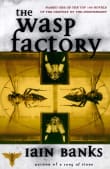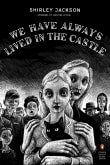The Virgin Suicides
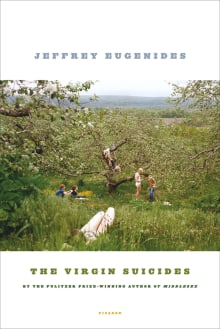
Book description
Introducing the Collins Modern Classics, a series featuring some of the most significant books of recent times, books that shed light on the human experience - classics which will endure for generations to come.
That girl didn't want to die. She just wanted out of that house. She wanted out…
Why read it?
8 authors picked The Virgin Suicides as one of their favorite books. Why do they recommend it?

I loved the way Jeffrey Eugenides wrote this because he wrote it like he was being completely honest with someone he completely trusted.
The thoughts we had when we were teenagers aren't always thoughts we're comfortable sharing, and the older we get, the harder it is to admit those thoughts and feelings, even to ourselves. But nothing shapes us quite the way our teenage years shape us, and, in order to be honest about who we are, we must be honest about who we were. This is an honest novel.

There’s a driving intensity to this book's narrative and atmosphere, which remains as compelling and fresh today as when I first read it years ago. Part of its power derives from Eugenides’ use of first-person plural narration through the collective voice of a group of neighborhood boys still haunted, years later in adulthood, by the untimely deaths of five adolescent sisters in 1970s suburban Michigan.
Part-detectives, part-elegists, they piece together their memories of not only the girls but of a particular place and time now vanished. I’m always struck by the book’s deft melding of pathos and humor and by…
From Ruby's list on life after personal tragedy.

I’d normally abstain from the pompous sin of quoting one’s own fiction, but I’m doing it here only to contextualize this recommendation.
“Adolescence is an exercise in coveting what exists just beyond our grasp,” my book’s narrator tells us in his preamble to his telling of Foster’s story. “It is this inaccessibility that sustains its magic.” To be fifteen is to be a voyeur looking wistfully in on the poignancy of others’ lives: this is the idea I tried to operationalize through the narrator’s project, with full knowledge that I’d never do it as lyrically as The Virgin Suicides.
Nominally,…
From Nash's list on teenage sentimentality.
If you love The Virgin Suicides...

I opened the book with trepidation – we all know someone who has done the act. All the trite explanations of “why” sound blasphemous to me. Other novelists tackled the taboo subject of teen suicide, but Eugenides’s narrative remains oddly elegiac and timeless as a Greek tragedy. The appallingly hyperbolic story is told in third person plural – we – from the outside looking in. A chorus of nameless teenaged boys function as a collective mind, of which the reader is a part. The narrators are well-meaning but unreliable because they cannot know what the girls were thinking or feeling,…
From Linda's list on coming of age fiction about deeply troubled teens.

Intensely voyeuristic, The Virgin Suicides is a novel that locks the reader deep in the minds of neighboring obsessed teenage boys. They unravel the mystery of the Lisbon household with a distance that is both far and near in a way that shows Jeffrey Eugenides’ mastery of the written word. The novel is told by the collective of boys after they’ve become men, all still unable to let go. Their childish male gaze turned adult insight into the secrets that surround both the Lisbon daughters and those close to them are haunting. Also, the prose is stunning.
From Elle's list on the secrets your neighbors keep.

Before Jeffrey Eugenides won the Pulitzer Prize for his sophomore effort, he debuted on the literary scene with one of my very favorite books, The Virgin Suicides, a dark and haunting novel about a group of five repressed teenage sisters who each commit suicide over the course of a year. In Eugenides’ subversive coming-of-age tale, he explores themes of religion, isolation, and mental illness through the collective narrative voice of the neighborhood boys who obsessed over the sisters and want to understand why they killed themselves.
From Martin's list on dark fiction on the hidden shadows of humanity.
If you love Jeffrey Eugenides...

This book has been on my list of all-time favorites since it was first published in 1993. The premise can be a tough sell; it’s the story of a family with five daughters, all of whom commit suicide over the course of a year. But the book’s greatest strength lies in the way the story is told: narrated by the collective voice of the neighborhood boys, who admired and wondered about the Lisbon girls from afar, the novel has one of the most unusual and compelling narrative voices of any book I know.
From Carolyn's list on characters dealing with grief.

Adapted from his 1990 short story, Jeffrey Eugenides’ remarkable debut novel does the impossible. Relocating gothic tropes of the past in the Detroit suburbs of the 1970’s, he tells the most intimate, inventive and terrible suburban gothic tale in contemporary fiction.
Employing the funhouse lens of multiple narrators -- neighborhood boys who are voyeuristically obsessed with the five Lisbon sisters -- Eugenides invokes a deceptively nostalgic past while looking ahead to current national traumas including religion, the media, family dysfunction, and environmental disaster. Imprisoned in an ordinary-looking suburban home that is dying like the neighborhood itself, the sisters are doomed…
From Paula's list on the American suburban gothic.
Want books like The Virgin Suicides?
Our community of 12,000+ authors has personally recommended 100 books like The Virgin Suicides.








